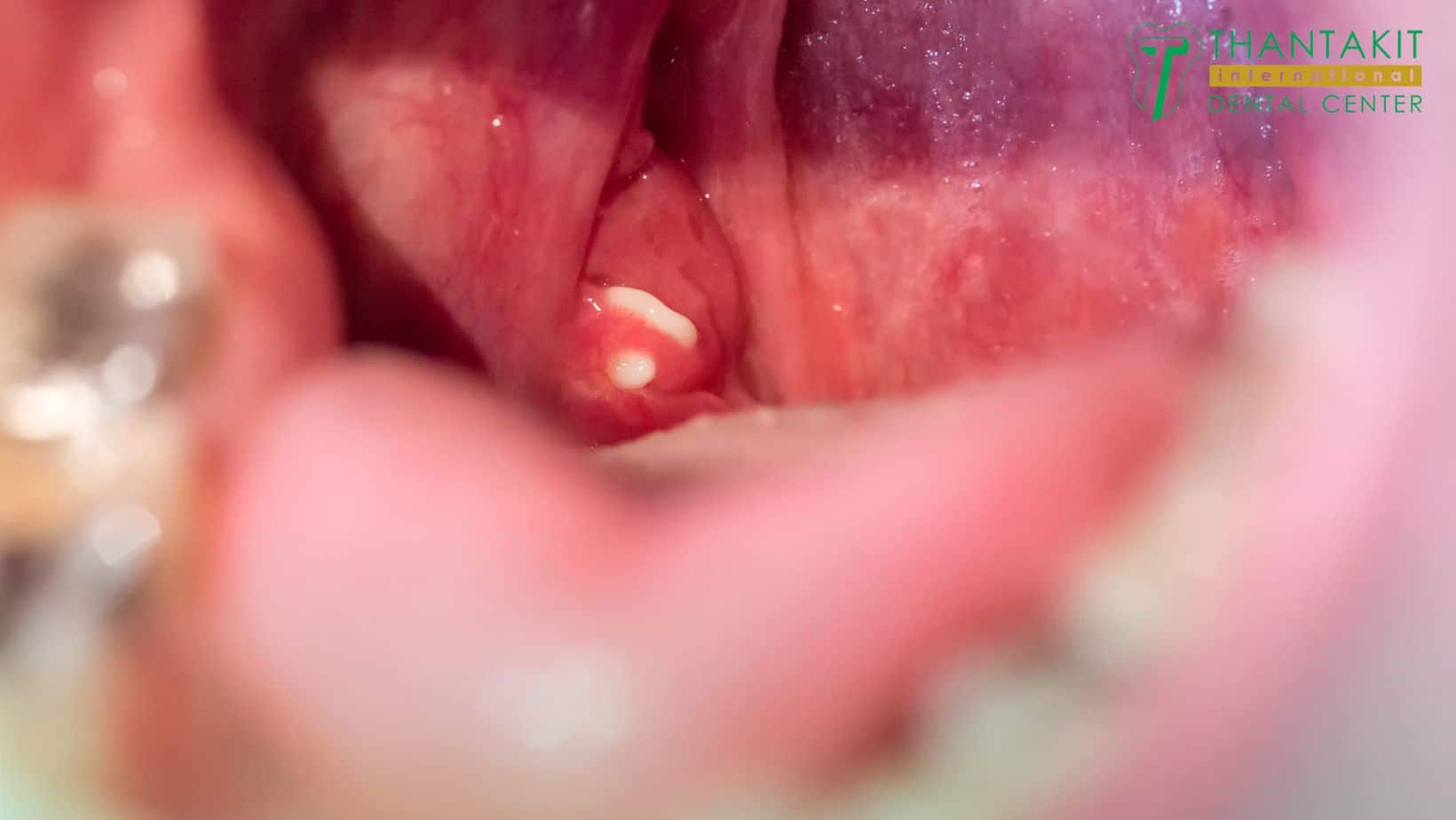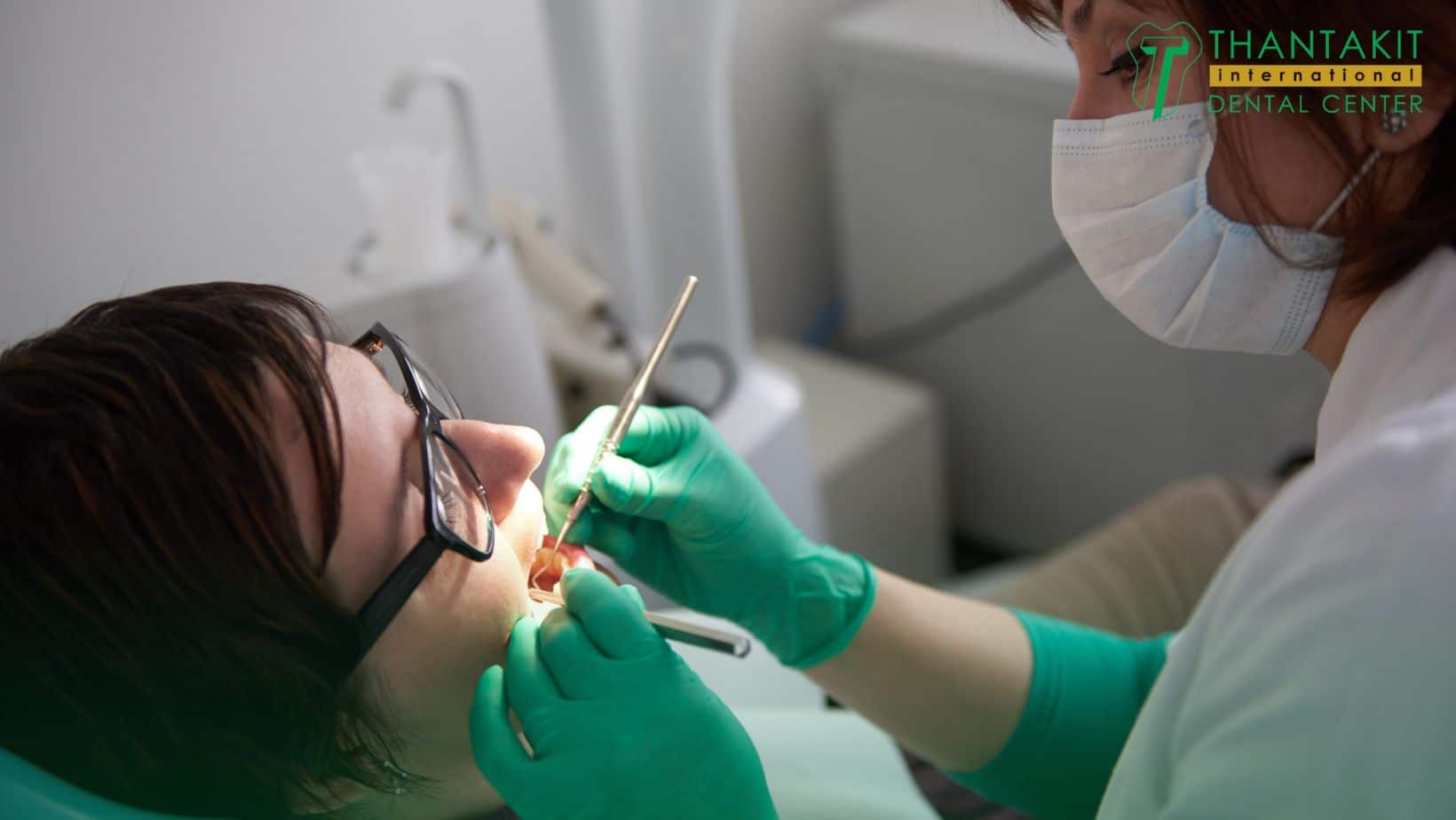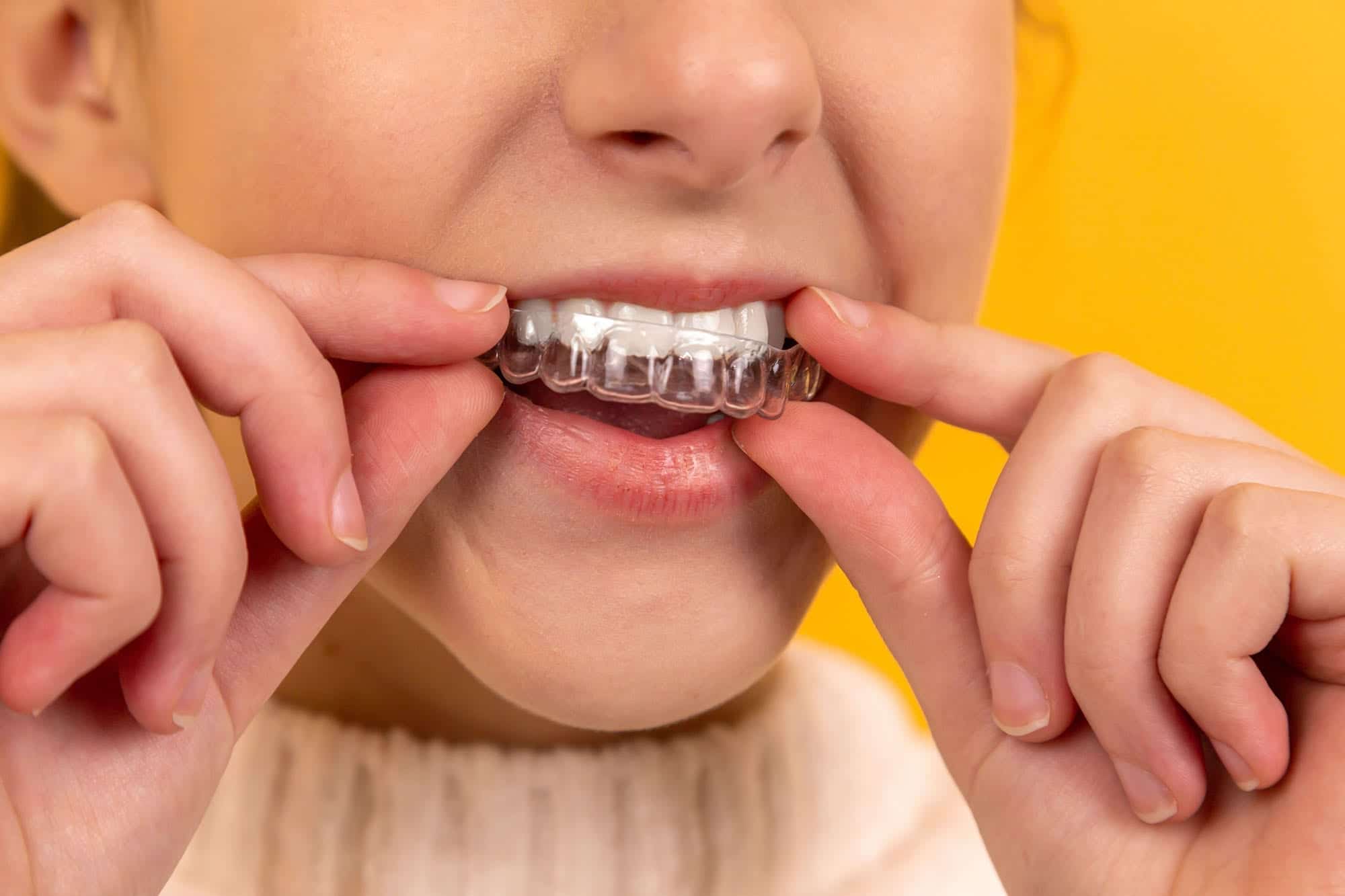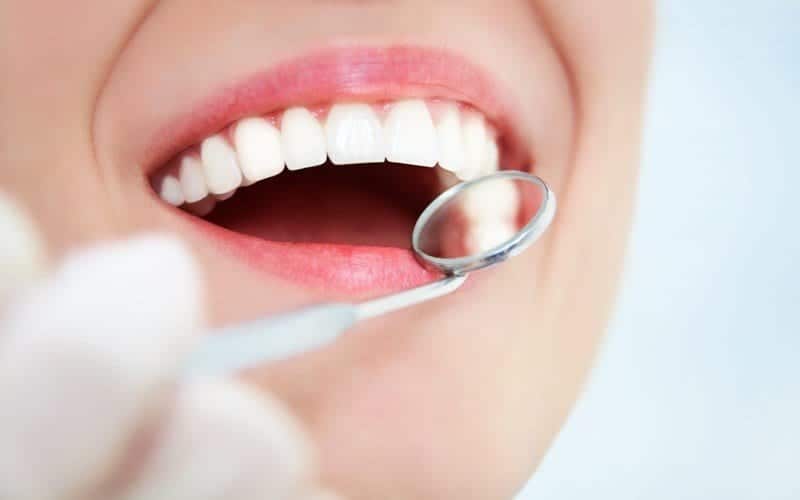Fresh-smelling breath. It’s one of the simplest yet most impactful ways to leave a good impression on people you just met.
When combined with a confident smile, a pleasant breath can make all the difference when setting a welcoming tone for all your interactions.
Yet, despite their best efforts—brushing, flossing, and mouthwash—some people grapple with persistent bad breath. At worst, this oral health issue can leave others self-conscious and hesitant to socialize to their full extent.
Are you one of those people who’s struggling with foul breath? First, know you are not alone. Second, it’s important to acknowledge that this problem may reveal an underlying concern.
Don’t ignore the signs of bad breath and take a proactive approach to improve your oral health. Keep reading to learn what you can do.
Page Contents
Tonsil Stones: An Unlikely Culprit for Bad Breath
Bad breath (or, as clinical experts call it, halitosis) is a struggle many people are familiar with—whether because it’s a problem they’re dealing with or because it reminds them of someone they know. For a better grasp of this issue’s prevalence, statistics 1 in 4 people worldwide are having trouble with halitosis.
While many immediately blame garlic or coffee for the foul smell, only a few know about this often-overlooked cause: tonsil stones.
Scientifically known as tonsilloliths, food particles, dead cells, and bacteria accumulation are the main causes of this condition—amassing in the folds on the tonsil’s surface called the tonsillar crypts. Over time, these materials slowly harden (hence why they’re called stones) growing from the size of a rice grain to even a marble.
In most cases, tonsilloliths aren’t a red flag of a life-threatening health condition. But then again, the presence of these stones can cause persistent discomfort, bad breath, and, at times, health complications. That means seeking professional remedies should still be part of your recovery plan.

Unraveling the Scientific Link Between Tonsil Stones and Bad Breath
Bacteria call tonsil stones their home. As stones form, the tonsil surface becomes the ideal environment for the bacterial population to boom. These bacteria are responsible for breaking down organic matter inside the mouth.
The byproduct of the breakdown process is the production of volatile sulfur compounds (VSCs). Since it contains sulfur, people may liken the odor of these compounds to that of rotting eggs. Thus, bad breath.
So, no matter how invested people may be in their oral care routine, this doesn’t spare them from having persistent halitosis if their tonsils have stones within them. Remember, understanding the relationship between bad breath and tonsil stones paves the way for timely and appropriate treatment to improve your overall oral health.
Factors that Aid in Tonsil Stone Development That You May Not Know About
Like any other oral health issue, tonsilloliths are caused primarily by poor hygienic practices. Neglecting basic oral care like brushing and flossing will allow the organic materials to form deep within tonsillar crypts.
Beyond an inadequate oral care routine, these calcified deposits are also caused by other lesser-known culprits, such as chronic throat infections. Tonsil enlargement is a known aftermath of recurrent tonsillitis. These bouts then produce crevices, which debris can easily calcify.
Gastroesophageal reflux disease (GERD) is also part of this list. Although uncommon, throat irritation is part of the symptoms associated with GERD, making your tonsils more susceptible to stone formations.
Apart from health-related factors, your habits also play a role in tonsil stones formation… and yes, it goes beyond poor hygiene.
Let’s start with your diet. While it only has a subtle influence, excessively consuming dairy products may increase mucus production. That, in turn, encourages organic material buildup in the tonsil area.
Additionally, smoking and dehydration are also to blame. These two help reduce saliva flow in the mouth. Lesser saliva equates to a higher risk of tonsilloliths, as a dry mouth creates an ideal environment for bacterial activity.
By understanding the lesser-known causes of tonsil stones, you can create a proactive and holistic approach to prevention, especially if you’re guilty of the habits discussed.
Why Are Certain Individuals More Prone to Tonsilloliths?
As explored earlier, health factors and lifestyle choices are some reasons behind the increased likelihood of certain people having tonsil stones. But beyond these causes, specific groups of people may unknowingly be at higher risk of developing tonsil stones because of their anatomy. These are as follows:
-
People with Large Tonsils
The bigger the tonsils, the deeper their crypts and pockets. These crevices make it easier to trap debris and facilitate calcified formations. A person can have enlarged tonsils due to reasons such as genetics, infections, or chronic inflammation.
-
Adolescents and Young Adults
From a demographic standpoint, teenagers have a higher chance of having tonsil stones as the organ is larger and more active during this particular phase of life. Interestingly, tonsils shrink with age, lessening the likelihood of stone formation.
-
People with Xerostomia
Whether due to medications, dehydration, or certain medical conditions, a dry mouth impedes the body’s natural capabilities to flush out food particles stuck in oral crevices. Thus, xerostomia (or dry mouth) can aid in stone formation.
If you fall into these categories, you can now make informed decisions about your oral hygiene practices, lifestyle, and when to seek medical advice.

What Are Some Clear Symptoms of Tonsil Stones?
Early identification is crucial for treating any health condition. While many experts regard tonsil stones as harmless, leaving them untreated can lead to severe oral health issues. To prevent further complications, consider the following symptoms to determine the potential presence of tonsilloliths early:
-
Persistent Bad Breath (Halitosis)
Starting with the most recognized sign of tonsil stones, chronic bad breath should be a cause for alarm, especially if you still cannot eliminate the smell despite constant brushing or mouthwash. The reason for the foul odor is that bacteria get trapped in the tonsils, producing VSCs.
-
Sore Throat
Even small-scaled tonsil stones are enough to cause noticeable pain in your tonsil. Constant irritation from the stones can later inflame the affected area, causing a sore throat.
-
Difficulty in Swallowing
Depending on the size and location of the calcified deposit, swallowing food (or even saliva) can become uncomfortable due to the sensation of a foreign object in the affected area.
-
Ear Pain
If you didn’t know, there’s a close connection between the nerves in the throat and ears. Hence, in some cases, an enlarged or inflamed tonsil can trigger discomfort or pain in the ears.
-
Coughing
Another often-overlooked sign of tonsillolith is constant, ticklish coughing. These stones often irritate the back of the throat, which can then trigger a reflex as your body attempts to clear the blockage.
-
Metallic Taste in the Mouth
Some individuals with tonsil stones claim to have sensed a persistent metallic taste. The cause behind this unpleasant sensation is bacterial activity within the mouth, which can affect taste receptors.
Have you ticked multiple boxes for these symptoms? If you suspect you may have tonsil stones, an ideal first step is performing a self-examination. You may use a mirror and a flashlight to inspect the back of your throat for any visible white or yellow stones.
Then again, it’s also worth noting that tonsilloliths are not always visible. Hence, it’s always a better idea to consult a health professional.
What Happens When You Ignore Your Tonsil Stones and How Are They Diagnosed?
In the vast majority of cases, tonsil stones are small and asymptomatic. However, there are also instances when professional intervention becomes necessary. By promptly seeking medical advice, you can address any underlying health issue(s) to prevent any complications from worsening.
So, what happens if you leave tonsil stones untreated? One, your bad breath will surely persist. That can reach a point where your self-esteem will get lowered as more and more people will hesitate to socialize with you. Some people may even give the cruelest remarks.
Ignoring this oral health problem can also cause throat infections and, In severe cases, abscesses. For the latter, more health-concerning effect, the tonsilloliths have damaged the tonsillar tissue enough to make it more vulnerable to infections.
All these underline the importance of seeking timely treatment despite the severity of your condition.
When diagnosing tonsilloliths, healthcare professionals begin with a physical examination centered on the mouth and throat. Using a lighted instrument, visible stones or hints of inflammation will be checked first. If your stones are not easily visible, the medical professional will recommend a throat X-ray or CT scan for precise identification of the stones’ presence and size.
Certain cases may also need the expertise of an ear, nose, and throat (ENT) specialist. ENTs use specialized tools to get a clearer view of the tonsils and surrounding areas. These procedures are swift and non-invasive, so knowing this hopefully lessens any hesitations to undergo diagnosis. This enables healthcare providers to find the best treatment for you.

How Can Dentists Help Treat Tonsilloliths?
Among the possible treatment options, a trusted dentist can be a reliable professional who provides the first line of care. These professionals can conduct thorough examinations and offer you possible treatment options.
While dentists are highly capable of diagnosing and treating tonsilloliths, their focus is usually on treating smaller stones. So, for severe or recurring cases, your dentist may refer you to an ENT specialist.
The most common tonsil stone treatment a dental practice can offer is manual removal. Your dentist may use specialized tools to dislodge and remove any accessible debris from the affected area. For most patients, this procedure is quick and relatively painless, although some may complain about minor discomfort.
In addition to treating minor tonsillolith cases, dentists can also help you improve your oral care routine. Most would recommend regular brushing and flossing, with some even prescribing an antiseptic mouthwash to lessen the likelihood of future stones from developing.
Tonsillectomy: When Is It Needed and How Can You Promote Smooth Post-OP Recovery?
For larger stones, professionals may need to consider more invasive options. In the most severe cases, tonsillectomy—the surgical removal of the tonsils—becomes necessary. While dentists can help identify the need for tonsillectomy, only ENTs are allowed to perform the operation itself.
This surgery is considered to be a more permanent solution, as it eliminates the tonsils entirely. Thus, medical experts will only recommend this procedure to those whose daily lives are significantly impacted by frequent or painful tonsil stones.
After undergoing a successful surgery, you can take a proactive role in ensuring smooth, complication-free healing. To achieve this, consider the following tips:
-
Follow the Doctor’s Orders
Never neglect the instructions given to you by your healthcare expert. That includes accurately taking your medications for pain management and infection prevention.
-
Take Ample Rest
Be sure to relax your body. Rest is crucial, especially in the first week post-operation. So those strenuous activities you plan on doing should be postponed after recovery to reduce bleeding risks.
-
Stay Hydrated
Yes, we understand how swallowing can be painful. But that shouldn’t stop you from neglecting your water intake. If you didn’t know, a moist mouth aids healing. So, if you’re experiencing throat irritation, stock your fridge with cool and soothing liquids (water, ice chips, or diluted fruit juices). These will be your answer to discomfort.
-
Maintain a Soft Diet
Craving for your favorites? Most may have to wait awhile. During your recovery, your meals will mostly consist of applesauce, yogurts, mashed potatoes, clear-broth soups, and other easy-to-digest foods that your doctor will recommend.
Your plate should also be devoid of any spicy, acidic, and crunchy food items. These meals can lead to irritation in the affected area.
-
Avoid Cigarettes and Alcohol
If smoking and drinking have become a habit, it’s best to find healthier pastimes. These activities dry the throat, impeding recovery.
To some extent, discomfort and bleeding are part of the healing process. However, severe pain, fever, or heavy bleeding, should raise some red flags. When these happen, please contact a medical expert immediately. The more you take these tips to heart, the sooner you’ll return to your normal routine.
Dispelling Common Myths About Tonsil Stones
Like any other health condition, there are several misconceptions surrounding tonsil stones. As professionals in the medical field, part of our duty is to correct these inaccurate assumptions to lessen people’s hesitations about seeking medical interventions and empower patients. Here are some of the most common tonsillolith myths:
Myth 1: Tonsil Stones Are a Sure Indication of Poor Hygiene
While poor oral care practices can contribute to tonsil stone development, it’s not the cause for all cases. People who brush and floss regularly may also experience this condition simply because of their tonsil’s natural anatomy, which may trap debris more easily.
Myth 2: Tonsil Stones Are Contagious
A person with tonsilloliths cannot pass their stones to other people with contact. Since stone formation involves the accumulation of food particles, bacteria, and other debris, this condition is personal and physical.
Myth 3: Tonsil Stones Always Cause Pain
Most tonsil stones are asymptomatic, with the usual noticeable symptoms being a foul breath and a metallic taste in the mouth. However, larger stones may cause discomfort or soreness.
Myth 4: Surgery is the Most Common Treatment Option for Tonsilloliths
Tonsillectomy is only for severe cases of tonsil stones. For many others, treatment is achievable by removing manually, gargling with salt water, or using a water flosser. Despite this, we still strongly advise you to seek medical consultation first.
Myth 5: The Stones Will Go Away on Their Own
It’s true that small stones can dislodge naturally. However, stubborn stones often require intervention. Ignoring persistent stones can lead to discomfort, infection, or further complications.

Are You Ready to Get Rid of These Pesky Stones?
Do your tonsils and regain the freshness of your breath by having your tonsilloliths professionally removed by a trusted dentist in Thailand.
At Thantakit Dental Center, our team consists of the most prominent names in the country’s dental industry. Our professionals can ease you through the removal process as they take out your tonsil stones with precision and care while offering tips for long-term oral care practices.
With our holistic approach to tonsil stone removal and recovery, we’re confident our patients go out of the center empowered in their endeavor to address tonsillolith development.
With our experience as Thailand’s longest-running dental practice, choosing Thantakit International Dental Center helps ease your worries in seeking dental services. Although we are situated in Bangkok, we have loyal clients flying to our country from places like Australia and the United States.
Send us your inquiries today and enjoy a FREE dental consultation.












